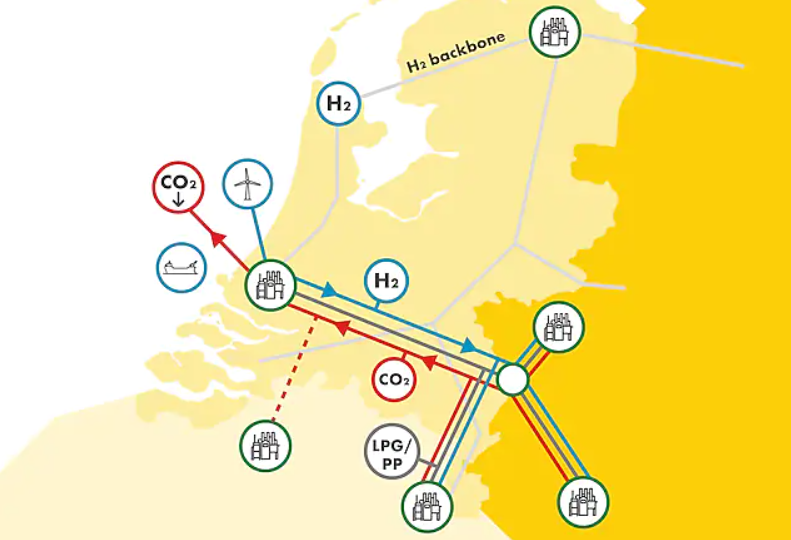Netherlands – The Delta Rhine Corridor, a bundle of pipelines connecting industry in the Port of Rotterdam with other industrial clusters in the European hinterland, will not be able to be realized in 2028 but only in 2032.
Last year, the initiators (Gasunie, TenneT and a consortium of companies) in cooperation with the Dutch Ministry of Economic Affairs and Climate started the project procedure to lay all modalities underground in a single construction route. The corridor provides pipelines for hydrogen, hydrogen carrier ammonia, CO2 and a bundle of direct current cables.
The initial plan was to lay the pipelines at the same time. This proved unrealistic because of the different construction techniques for the pipelines and cables. Because the realization of hydrogen and CO2 pipelines in particular is urgent, Gasunie and the government concluded that construction at different speeds is wise.
The provinces involved reacted with disappointment to the decision to abandon bundled construction and to the delay. The provinces want hazardous substances to be transported by pipeline as soon as possible instead of, for example, by rail.
The Port of Rotterdam Authority considers it important that the development of hydrogen and CO2 pipelines can follow their own time schedule. This is to prevent them from having to wait for the construction of power lines that will not be needed until 2035. Without pipelines for hydrogen (carriers) and CO2, the energy transition of industry in the Netherlands and North-West Europe cannot proceed, according to the port authority.





